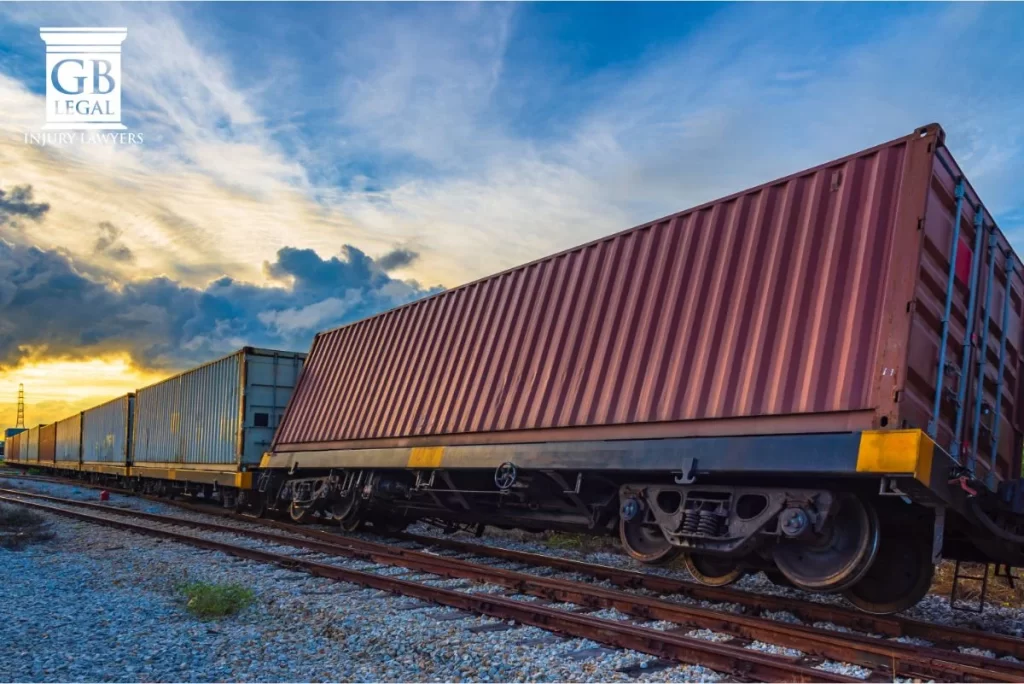If you are a California resident who has been involved in a train accident, you should consider contacting Sacramento train accident lawyers. Train accidents can leave people filled with many questions, and an experienced attorney can help provide answers to those questions. A common question that people have is, which state has the most train accidents?
California is one of the leading states in terms of train accidents. Although the state of Texas is the number one state in terms of total train collisions, California is the leading state in terms of train collisions that lead to fatalities. These train collisions are typically caused by illegal train track crossings, homeless encampments along the railways, or some form of negligence or equipment malfunction.
The total number of train accidents has been decreasing from year to year. However, the number of injuries and fatalities related to train accidents has remained relatively constant. This could be because of the serious damage that trains can pose to individuals if they are involved in an accident. Trains can often transport hazardous materials that if exploited, could cause severe damage.
Train Popularity in California
In the state of California, there are more than one hundred transit agencies that provide services throughout the state. Over the years, the California Department of Transportation has made efforts to increase the safety of rail travel. Although train accidents still happen in California, traveling by rail is much safer than traveling by car.
Train Accident Injuries
Train accidents can cause serious injuries to the people involved, especially if there are cars or other motor vehicles involved in the accident. These vehicles usually stand no chance against a train that is traveling at high speed. Due to the sheer weight and size of the train, motor vehicles are often destroyed or dealt considerable damage. Some common injuries that train accidents can cause can include:
- Fractured or crushed bones. These could include injuries to the hip, wrists, collarbone, ribs, etc. These types of injuries are fairly common during accidents.
- Spinal cord damage. Spinal cord injuries could include nerve damage or paralysis. These types of injuries could be very substantial as they could leave the victim paralyzed. It is not uncommon for spinal cord injuries to lead to multiple surgeries. Extensive rehabilitation and care are often required for these injuries as well.
- Brain or head injuries. Brain injuries can include concussions, head wounds, or other traumatic brain injuries. Depending on the severity level of the injury, it could lead to lifetime brain trauma for the victim.
It is important to remember that if you are ever unfortunately involved in a train accident that results in a serious injury, you should immediately seek the medical help that you need. It is important that you get checked out by a medical professional, especially if you are facing life-threatening injuries. Studies show that victims of train accidents who successfully make it to the hospital have a better chance of survival and limb salvage.
FAQs
Q: Where Do Most Train Car Collisions Occur?
A: Most train car collisions occur at train track crossings. Anywhere that a train crosses a road that is used by motor vehicle drivers, there is a greater potential for a collision. Accidents can happen if a motor vehicle driver is distracted or if they fail to yield to an oncoming train. Accidents can be devastating; they can often leave occupants seriously injured and also cause serious damage. Train collisions can happen almost anywhere in the country, but most collisions happen in California.
Q: What Is the Cause of Most Railroad Crashes?
A: While each railroad crash is unique in its own way, most of the time, railroad crashes are caused by negligence or some form of human error. Negligence can fall on different parties related to the accident. Negligence could be found on the part of the railway company, the railway conductor, the equipment manufacturer, or even a government agency. For example, if the railway operator failed to turn on the signal light and it contributed to the accident, the operator may be found negligent.
Q: Are Trains Safer Than Planes?
A: The answer as to whether trains are safer than planes depends on how safety is measured. If you measure safety based on accidents that occur per the number of miles traveled, then planes could be viewed as the safer mode of transportation; however, if you measure safety based on the number of accidents that occur per trip, then trains could be viewed as safer. Regardless, transportation by means of a train or a plane is much safer than traveling by motor vehicle.
Q: What Was the Worst Railroad Accident?
A: One of the worst railroad accidents that occurred in California was in 2008 when a Metrolink commuter collided head on with a Union Pacific freight train. The engineer on the commuter ran a red light because he was distracted by text messages he was sending out while on duty. The accident caused 25 fatalities and another 135 people were injured. The accident was one of the deadliest railroad disasters in California state history. The event helped spur the Rail Safety Improvement Act of 2008.
Q: Are Fatalities Common in Train Accidents?
A: Train accidents are some of the most devastating types of accidents that can occur. Depending on the degree of the accident fatalities can be common. There are several factors at play that can influence the probability of fatality. One factor is if there is a motor vehicle involved. Many train accidents occur at railroad crossings where motor vehicles are nearby. If a motor vehicle is hit by a train, it is likely that the occupants of the vehicle will be killed.
Legal Help
Train accidents are scary events, and they can have a devastating impact on everyone involved. Train accidents can bring national attention, and oftentimes, regulators and agencies get involved to discover the cause of the accident and who should be held accountable. To learn more about the aftermath of a train accident, you can contact us at Guenard & Bozarth, LLP. Our team is ready and able to answer any questions you may have.


